Post-Impressionist artists extended Impressionism in various ways like intensifying its already vibrant colors or distorting form for expressive effects. As these artists modified different aspects of Impressionism, it is difficult to specify exact characteristics of Post-Impressionist Art. Post-Impressionism describes French art style from mid 1880s to early 1900s. Many great artists, like Van Gogh and Cezanne, adopted Post-Impressionism as their favored art style and created several masterpieces. Here are the 10 most famous works of Post-Impressionism.
#10 The Dream
| French Title: | La Reve |
| Location: | Museum of Modern Art, New York City, U.S. |
| Artist: | Henri Rousseau |
| Year: | 1910 |
The Dream was exhibited a few months before the death of Henry Rousseau, a self-taught genius who was ridiculed during his lifetime. It is the last completed work of Rousseau and the largest of his jungle paintings. The painting was later much celebrated by the Surrealists, whose art valued surprising juxtapositions and dream-like moods.
#9 The Yellow Christ
| French Title: | Le Christ jaune |
| Location: | Albright–Knox Art Gallery, Buffalo, New York, U.S. |
| Artist: | Paul Gauguin |
| Year: | 1889 |
Along with The Green Christ, this painting by Gauguin is among the first and most important works of Symbolism in painting. The Yellow Christ shows the crucifixion of Christ taking place in 19th century northern France while women are gathered in prayer. The painting is noted for various symbolisms, like the man running in the background reflects the 19th century desire to run away from city life and get back to the “primitive”, and much simpler life that was before.
#8 Bathers at Asnieres
| French Title: | Une Baignade, Asnieres |
| Location: | The National Gallery, London, U.K. |
| Artist: | Georges Seurat |
| Year: | 1884 |
This famous painting was created by Seurat when he was just twenty four years old and it was the first of his large-scale canvases. Seurat has used a combination of complex brushstroke techniques and a meticulous application of contemporary color theory to create a sense of gentle vibrancy and timelessness, in this masterpiece. The message Seurat is trying to convey through this painting has been interpreted as implying that the working class represented the future while the middle class had grown decrepit and ridden with vice.
#7 Jug, Curtain and Fruit Bowl
| French Title: | Rideau, Cruchon et Compotier |
| Location: | Private Collection |
| Artist: | Paul Cezanne |
| Year: | 1894 |
Cezanne is considered the greatest master of still life painting and this work is his most celebrated still life painting. This sensational work, in which Cezanne creates a double perspective, is a prelude to Picasso’s cubism. Rideau, Cruchon et Compotier was the most expensive still life ever sold at an auction at the time it was auctioned in 1999.
#6 At the Moulin Rouge
| Location: | Art Institute of Chicago, U.S. |
| Artist: | Henri de Toulouse-Lautrec |
| Year: | 1895 |
Born in an aristocratic family and physically disabled due to a genetic disorder, Henri de Toulouse-Lautrec is one of the most well-known Post-Impressionist painters. He was famous for painting exciting and elegant images of the 19th century Paris nightlife and At the Moulin Rouge is his best known masterpiece.
#5 Where Do We Come From? What Are We? Where Are We Going?
| French Title: | D’où Venons Nous / Que Sommes Nous / Où Allons Nous |
| Location: | Museum of Fine Arts, Boston, U.S. |
| Artist: | Paul Gauguin |
| Year: | 1898 |
According to Gauguin this painting should be read from right to left, with the three major figure groups illustrating the questions posed in the title. It is not only the most colossal canvas that Gauguin painted in his entire life, but it is also the work which explains in detail the entire philosophical and pictorial doctrine of the artist.
#4 Sunflowers Series
| French Title: | Tournesols |
| Location: | Various Museums |
| Artist: | Vincent Van Gogh |
| Year: | 1888 |
The series of paintings on ‘sunflowers’ by Van Gogh rank among the most famous paintings ever created. One of these ‘sunflowers’ smashed the auction record of the most expensive painting when it was sold to a Japanese investor for almost $40 million in March 1987.
#3 The Card Players Series
| Location: | Various Museums |
| Artist: | Paul Cezanne |
| Year: | 1890s |
A masterpiece of Post-Impressionist art, The Card Players series was painted in the final period of Cezanne’s work, which is considered the best period of this great artist. The paintings depict Provencal peasants engrossed in playing cards and smoking their pipes. They are noted for their lack of drama, narrative and conventional characterization. In 2011, one version of The Card Players was sold for more than $250 million, making it the most expensive work of art ever sold at the time.
#2 A Sunday Afternoon on the island of La Grande-Jatte
| French Title: | Un dimanche apres-midi s l’lle de la Grande Jatte |
| Location: | Art Institute of Chicago, U.S. |
| Artist: | Georges Seurat |
| Year: | 1886 |
This painting is most well-known and the best examples of “pointillism”, a style of painting in which small, distinct dots of pure color are applied in patterns to form an image. Considered a milestone of late 19th century Art, this painting is Seurat’s most important masterpiece. Seurat spent two years to create this painting, creating numerous sketches of the various figures in order to perfect their form.
#1 The Starry Night
| French Title: | De sterrennacht |
| Location: | Museum of Modern Art, New York City, U.S. |
| Artist: | Vincent Van Gogh |
| Year: | 1889 |
The Starry Night is the most famous work of the most famous Post-Impressionist artist, Vincent Van Gogh. Although painted from memory, this great painting depicts the view outside Van Gogh’s sanitarium room window at Saint-Remy-de-Provence in France. The work shows Van Gogh’s interest in astronomy and a study made by the Griffith Park Observatory demonstrated that Vincent represented the Moon, Venus, and several stars in the exact position they occupied that clear night.

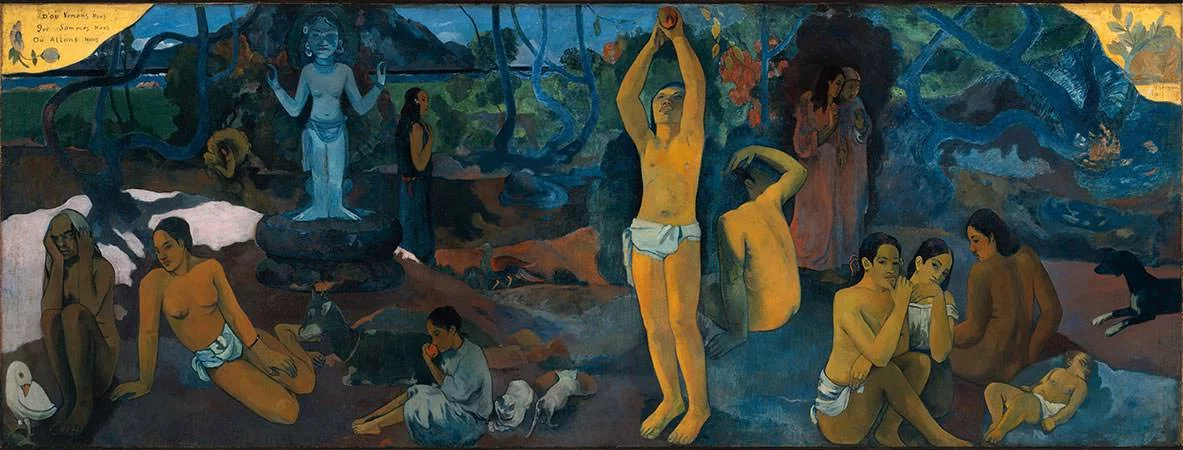
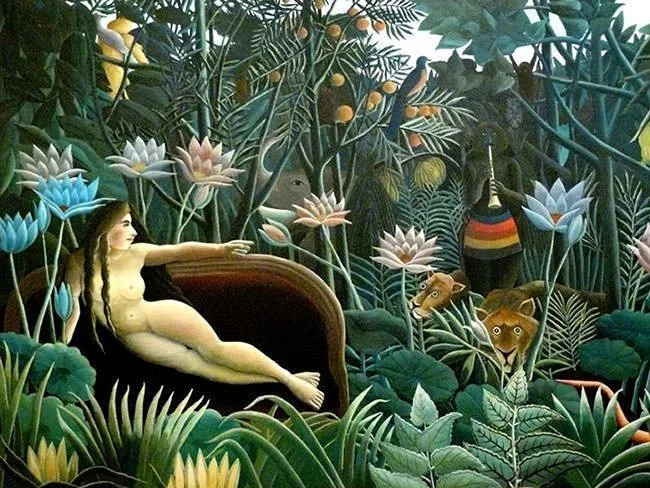
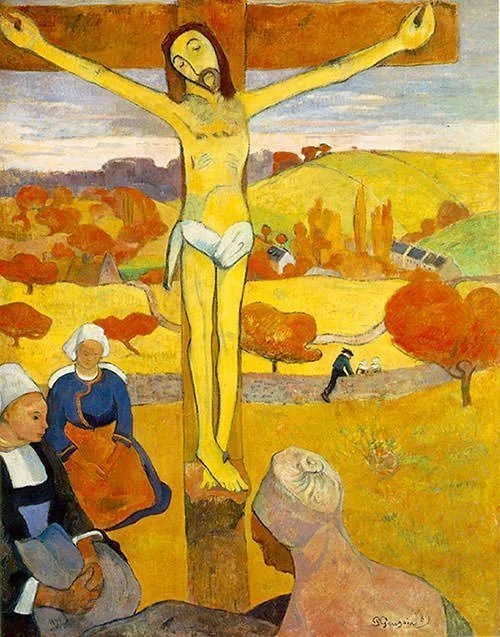
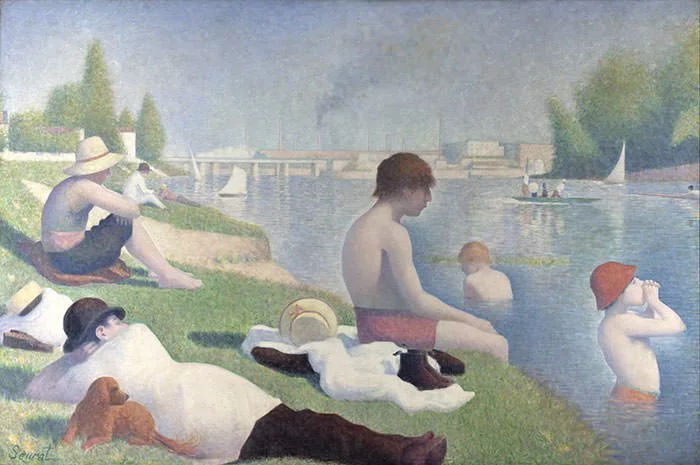
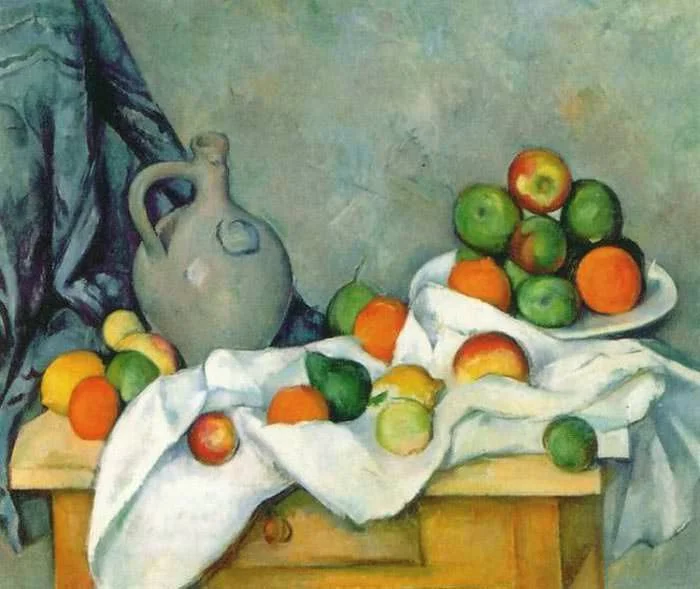
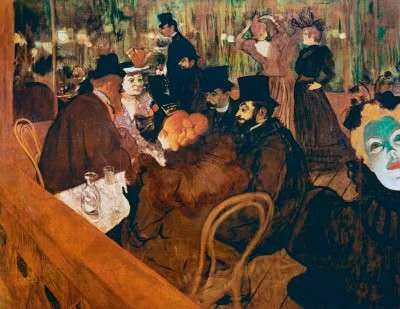
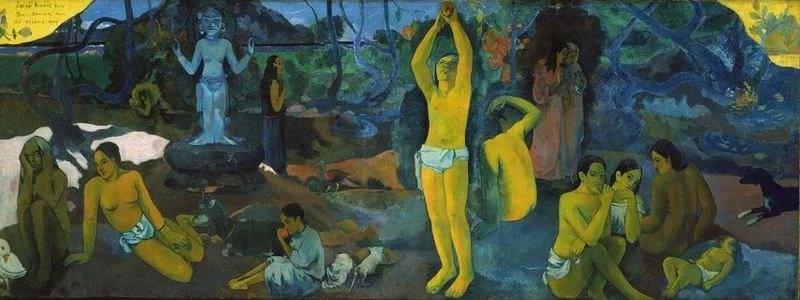
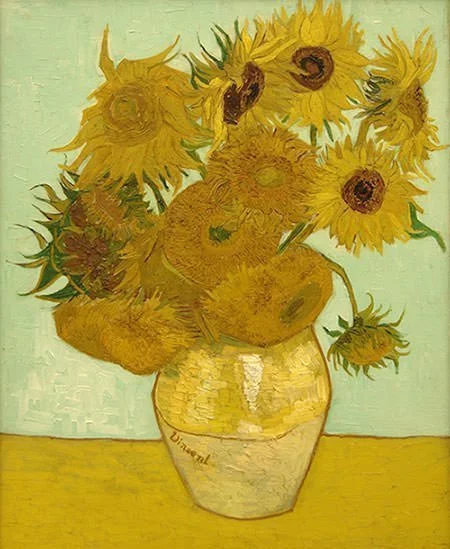
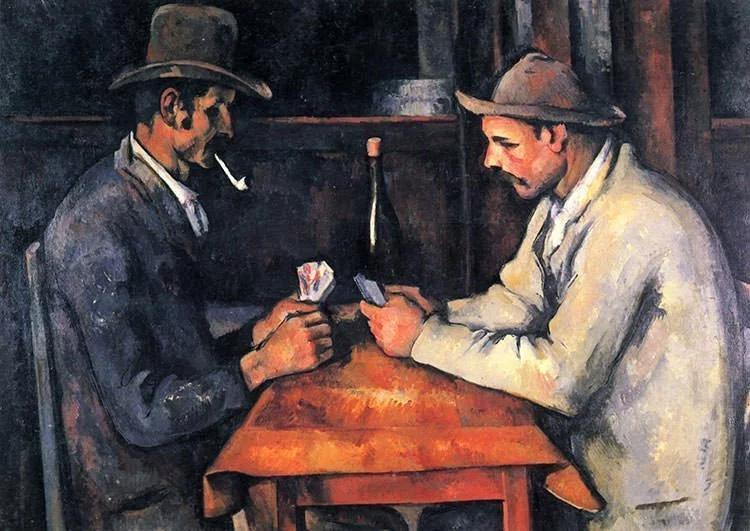
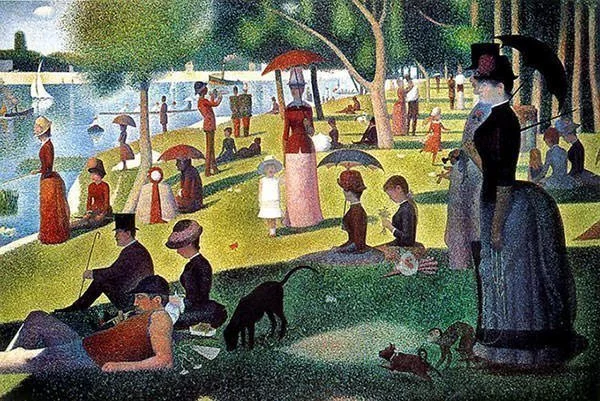
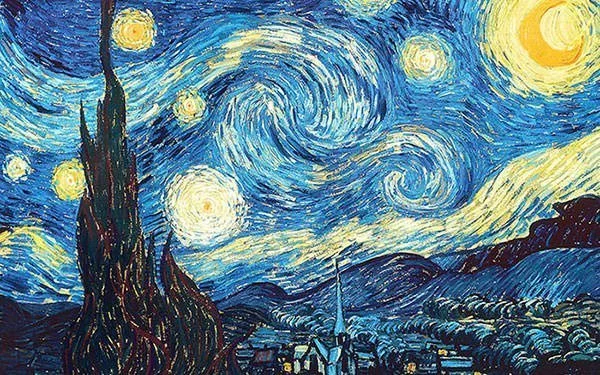
Hello Dear, are you in fact visiting this website on a regular basis, if
so after that you will definitely get pleasant knowledge.